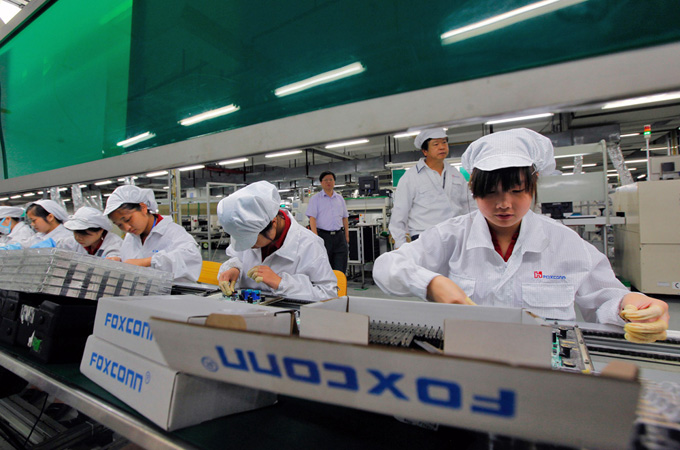
Is Apple working workers to death?
Activist Debby Chan explains why, as consumers, we should ask ourselves how the products we purchase are made.
 |
| Foxconn is the world’s largest manufacturer of electronic components, but is it working its workers to death? [EPA] |
This is the story of the battle against the maker of some of the most desirable gadgets on the planet.
Apple, the maker of the iPod, iPhone and iPad, now has bigger cash reserves than the US treasury.
Foxconn, the company building its gadgets in China, is the world’s largest manufacturer of electronic components and is accused of abusing its workers.
Debby Chan is a member of Students and Scholars Against Corporate Misbehaviour (SACOM) and is on a mission to change the lives of the workers making the gadgets we love to use.
Here she explains why, as consumers, we should ask how the products we purchase are made.
| ACTIVIST STATEMENT: DEBBY CHAN |
I have always been passionate about civil and political rights in Asia. Before joining Students and Scholars Against Corporate Misbehaviour (SACOM), I spent some time working on human rights issues such as Chinese investment in Burma, arbitrary arrest of human rights defenders in China and extra-judicial killings in the Philippines.
I find the human rights advocacy work meaningful because those who suffered from human rights violations should not be forgotten. I am pleased that I can contribute something with my limited capacity. I might not be able to change things, but the alternative would be to keep silent, which would make me a bystander to the suffering of others.
There are all sorts of human rights violations across the world. Like in Burma, the pipeline to China inflicts a wide range of human rights violations, including forced labour, displacement and arbitrary arrest, on a daily basis. Regrettably, the predicaments of the ethnic nationals in Burma are not heard by the public.
The work of SACOM is more focused on economic rights. And I am delighted to observe the changes in the factories through SACOM’s campaigns and the efforts from our international partners and media. For instance, at a Walmart supplier in Zhuhai, there have been a high number of industrial injuries in which workers lost fingers and hands. After the grave violations exposed by SACOM, the old machines were replaced by new ones.
News of the spate of suicides in Foxconn in 2010 alarmed me greatly. And I wondered whether the harsh management methodology drove workers into despair. SACOM then began to investigate the issues of management style.
As consumers, we should ask ourselves how certain products are made. We decided to find out what drove the workers to commit suicide and I went to the Foxconn plants in Shenzhen, Chengdu and Zhengzhou for off-site interviews. Some of the workers told me about the pressures they faced. It was just an awful situation. They keep repeating a monotonous motion hundreds or thousands of times a day and cannot talk during work. Some of them also feel that they resemble machines and do not want to talk to others after work.
Most of the companies put profits before workers’ rights and social impact. Corporate social responsibility is always window-dressing measures without enforcement mechanisms and remedies for workers. So the only way to stop labour rights violations is through campaigning. We hope that more consumers can pressure Apple and Foxconn and I strongly believe that not many people comprehend the real situation. Compare this to many toys and apparel companies. Apple and Foxconn in particular are indifferent to criticism from the public. However, we will not give up and hope that more and more consumers will join our cause.
iProtest can be seen from Tuesday, September 20, at the following times GMT: Tuesday: 2230; Wednesday: 0930; Thursday: 0330; Friday: 1630; Saturday: 2230; Sunday: 0930; Monday: 0330; Tuesday: 1630. |
